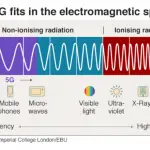Last Updated on 12 months by Francis
?
Voltage and EMF are two concepts often used in electrical engineering and physics. Although they are closely related, they are not exactly the same thing. In this discussion, we will explore the similarities and differences between voltage and EMF and how they are important in electrical systems.
Contents
Understanding Voltage and EMF
Voltage and EMF are two terms that are often used interchangeably, but are they the same? To understand this, we need to define these two terms.
Voltage
Voltage is the measure of the electric potential energy per unit charge in an electrical circuit. It is measured in volts (V) and is a scalar quantity. Voltage is the driving force that pushes the electric charge through a circuit.
EMF
EMF, or electromotive force, is the measure of the energy per unit charge that is supplied by a source of electrical energy. It is also measured in volts (V) and is a scalar quantity. EMF is the energy that is supplied by a battery or a generator to a circuit.
Differences Between Voltage and EMF
Now that we have defined voltage and EMF, we can see that they are not the same. While they are both measured in volts and are scalar quantities, they have different meanings.
The key difference between voltage and EMF is that voltage is the measure of the electric potential difference between two points in a circuit, while EMF is the measure of the energy per unit charge that is supplied by a source of electrical energy.
Another difference between voltage and EMF is that voltage is a measure of the electric potential difference between two points in a circuit, while EMF is the measure of the energy that is supplied by a source of electrical energy.
One key takeaway from this text is that while voltage and EMF are often used interchangeably, they are not the same thing. Voltage is the measure of electric potential energy per unit charge in a circuit, while EMF is the energy supplied by a source of electrical energy. It is important to understand the differences between these two terms, as they have different meanings and applications. Additionally, exposure to high levels of voltage or EMF can have significant effects on the human body, highlighting the importance of taking precautions when working with electricity.
Misconceptions About Voltage and EMF
There are several misconceptions about voltage and EMF that need to be addressed. One common misconception is that voltage and EMF are the same thing. As we have seen, this is not true.
Another misconception is that voltage and EMF are always equal. While they are equal in certain situations, such as when a battery is not connected to a circuit, they are not always equal.
One key takeaway from this text is that voltage and EMF are not the same, despite their similar units of measurement. Voltage measures the electric potential difference between two points in a circuit, while EMF measures the energy per unit charge supplied by a source of electrical energy. It is important to understand these differences to properly work with electricity and avoid the potential health effects of high levels of voltage or EMF.
Applications of Voltage and EMF
Voltage and EMF have many applications in our daily lives. They are used in electrical circuits, batteries, generators, and other electrical devices.
Voltage is used to measure the electric potential difference between two points in a circuit. This is important in determining the flow of electric charge through a circuit.
EMF is used to measure the energy per unit charge that is supplied by a source of electrical energy. This is important in determining the amount of energy that is available to a circuit.
A key takeaway from this text is that while voltage and EMF are both measured in volts and are scalar quantities, they have different meanings. Voltage is the measure of electric potential difference between two points in a circuit, while EMF is the measure of the energy supplied by a source of electrical energy. It is important to understand the differences between voltage and EMF, especially when working with electrical equipment, to avoid injury or health problems.
Effects of Voltage and EMF on the Human Body
Voltage and EMF can have significant effects on the human body. Exposure to high levels of voltage or EMF can cause injury or even death. In addition, long-term exposure to low levels of EMF has been linked to health problems such as cancer, Alzheimer’s disease, and other neurological disorders.
It is essential to take precautions when working with electricity to avoid exposure to high levels of voltage or EMF. This includes wearing protective gear and following safety guidelines when working with electrical equipment.
FAQs – Are Voltage and EMF the Same
What is voltage?
Voltage, also known as electric potential difference or electric tension, is a measure of the electric potential energy per unit charge in an electrical circuit. It describes the force that drives current through a circuit and is measured in volts (V) using a voltmeter.
What is EMF?
EMF stands for electromotive force and represents the potential difference generated by a source of electrical energy, such as a battery or generator. It is a measure of the energy per unit charge generated by the source and is also measured in volts (V) using a voltmeter.
Are voltage and EMF the same thing?
While voltage and EMF are related, they are not quite the same thing. Voltage is the measure of the electric potential difference between two points in a circuit, whereas EMF specifically refers to the potential difference generated by a source of electrical energy. In other words, voltage is the effect of the EMF on the circuit.
What is the difference between voltage and EMF?
The main difference between voltage and EMF is that voltage is a measure of electric potential difference between two points in a circuit, while EMF is the measure of electric potential difference generated by a source of electrical energy. Voltage can be measured anywhere in the circuit, whereas EMF can only be measured across the source generating the electrical energy.
Why is it important to understand the difference between voltage and EMF?
Understanding the difference between voltage and EMF is important in accurately analyzing and designing electrical circuits. If they are used interchangeably, it can lead to confusion and errors in calculations. Properly distinguishing between the two can help in making informed decisions and ensuring that the circuit operates efficiently and safely.







